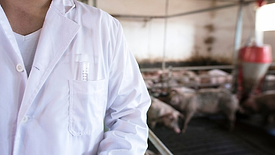International Standards/Harmonization
BIZTRACKS
UK FSA Endorses Qualification Course for Animal Feed Regulators
September 5, 2024
Never miss the latest news and trends driving the food safety industry
eNewsletter | Website | eMagazine
JOIN TODAY!Copyright ©2025. All Rights Reserved BNP Media.
Design, CMS, Hosting & Web Development :: ePublishing











